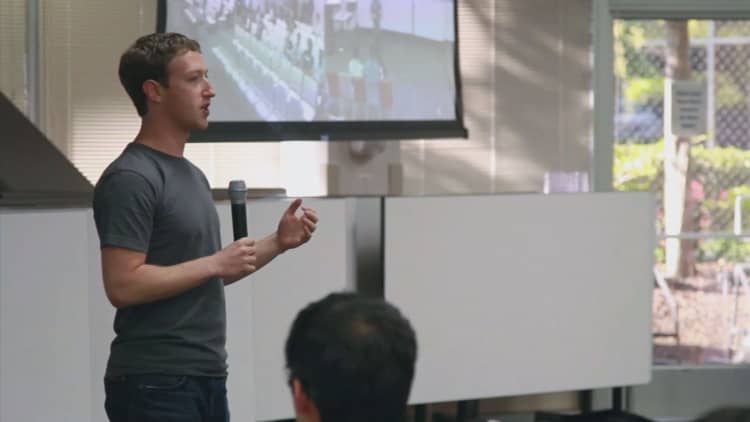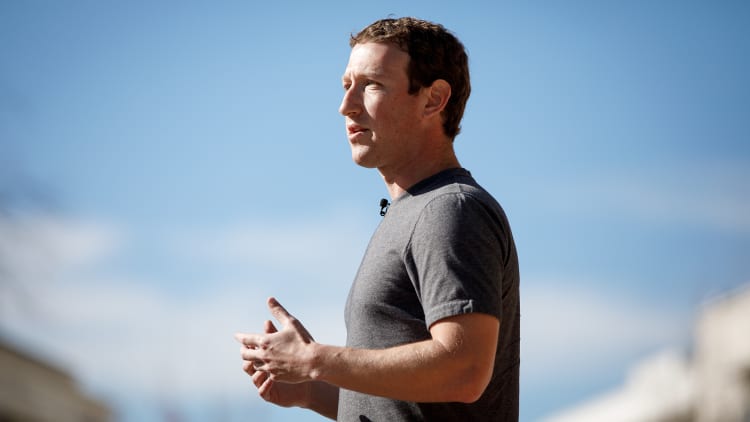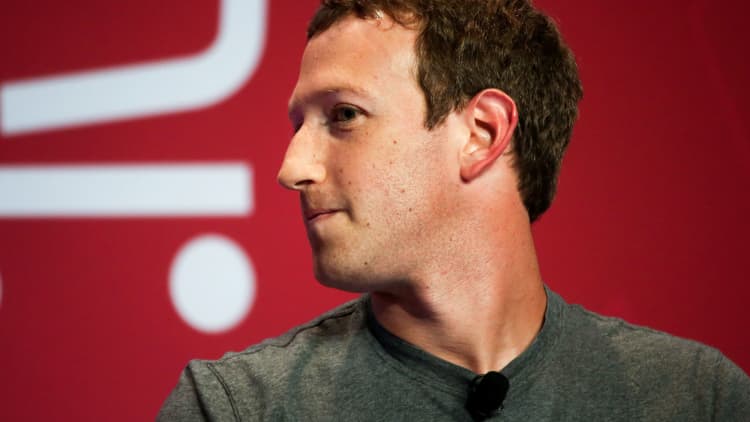Billionaire CEO Mark Zuckerberg's manifesto on the importance of building a global, connected community, released Thursday, included the admission that Facebook has made some serious mistakes.
Zuckerberg apologized for those errors.
Management experts agree it's important for leaders to own their missteps swiftly and without passing the blame.
So did Zuckerberg's letter accomplish its goals? We asked several experts to dissect his apology. Here's what they had to say.
FIRST, WHY WAS ZUCKERBERG APOLOGIZING?
About two-thirds through the lengthy letter, Zuckerberg says Facebook's existing content regulation strategies are not sophisticated enough for the current political climate.
In particular, he pointed out mistakes Facebook made in removing videos capturing police violence that were important to the Black Lives Matter movement and in removing iconic photo "The Terror of War."
"We've seen this in misclassifying hate speech in political debates in both directions — taking down accounts and content that should be left up and leaving up content that was hateful and should be taken down," says Zuckerberg. "This has been painful for me, because I often agree with those criticizing us that we're making mistakes."
This has been painful for me, because I often agree with those criticizing us that we're making mistakes.Mark ZuckerbergCEO of Facebook
He says these errors in judgment resulted from "operational scaling issues," meaning Facebook hasn't been able to keep up with its own growth.
The 32-year-old billionaire says while the solution is not fully fleshed out yet, it will involve community policing. Individuals and groups will be in charge of setting their own standards for what they want to see in their feed.
GOOD: ZUCKERBERG TAKES THE BLAME
An apology is only helpful in repairing damaged trust if leaders take full responsibility for their actions.
"The number one thing is acknowledging that you are clearly at fault, it is a mistake, and accepting full responsibility and without a hint of waffling," says Stanford professor of organizational behavior and co-author of "Scaling Up Excellence," Robert Sutton.

"And," he adds, "not doing that awful thing of 'I am sorry if you are upset' or sorry that 'people are upset.'"
If a leader apologizes and then simultaneously blames the mistake on other people or external factors, that is not an effective apology.
"Always blaming other people and events you can't control creates legitimacy problems, because people interpret it as a sign that you are powerless against your environment, aren't taking responsibility for fixing things and aren't learning from setbacks and mistakes," says Sutton.
The number one thing is acknowledging that you are clearly at fault, it is a mistake, and accepting full responsibility and without a hint of waffling.Robert SuttonStanford professor of organizational behavior and co-author of "Scaling Up Excellence"
Sutton thinks Zuckerberg does a sufficient job of holding the responsibility without begging for flattery. Overall, he deems Zuckerberg's apology imperfect, but notes that it demonstrates humility, a willingness to learn and an "attitude of wisdom."
"Leadership is a balancing act between confidence and doubt, and I think he does well there."
GOOD: ZUCKERBERG APOLOGIZES QUICKLY
Mistakes are going to happen.
"No successful CEO, or country leader, is right 100 percent of the time," says Hal Gregersen, executive director of the MIT Leadership Center.
But what makes a leader great is how quickly he or she responds to a blunder.
"The best CEOs embrace being wrong, because the faster they recognize their faulty thinking, the faster they reframe their questions and unlock better solutions. Zuckerberg did just that in acknowledging Facebook's missteps when it comes to building an inclusive community."
The faster a leader can acknowledge what is wrong and begin to course correct, the better.
The best CEOs embrace being wrong, because the faster they recognize their faulty thinking, the faster they reframe their questions and unlock better solutions.Hal Gregersenexecutive director of the MIT Leadership Center
"I give an A+ to Zuckerberg for taking the time, and devoting the resources, to acknowledge a few of Facebook's blindspots — then do something about them," says Gregersen. "Being uncomfortable and vulnerable, as his letter acknowledged yesterday, is one of the most powerful paths to creating inclusion."

BAD: ZUCKERBERG WAS OVERLY EMOTIONAL.
Not everyone gave Zuckerberg an A+.
Jan Hagen, an associate professor of leadership at ESMT Business School in Berlin, says Zuckerberg's manifesto was too emotional.
"Instead of emphasizing the need to analyze what has gone wrong at Facebook, not just referring to 'operational scaling issues,' and how this could be prevented in the future, he focuses on his feelings," says Hagen. "This seems to imply an unfair treatment from people criticizing Facebook for its actions."
A more effective apology would have been more direct and included a clear plan for how Facebook will fix the problems at hand and publicize the solutions.
"This would create more trust in the community," says Hagen, "but would also send a clear signal inside his own organization."
He has to do something to get ahead of this issue, but my guess is that this is an effort to hold off critics until Facebook figures out what they really want to do.Rita McGrathmanagement strategist and Columbia Business School professor
The vague apology, however, may be an effort to buy Facebook more time, according to management strategist and Columbia Business School professor Rita McGrath.
"There is a case that can be made that Facebook could eventually be regarded as a news organization, which would place a much higher standard upon it to edit, curate, verify what is distributed on its platform," McGrath says.
"So is the apology necessary? He has to do something to get ahead of this issue, but my guess is that this is an effort to hold off critics until Facebook figures out what they really want to do."
See also: Facebook HR exec says the company's best hires all share this trait



